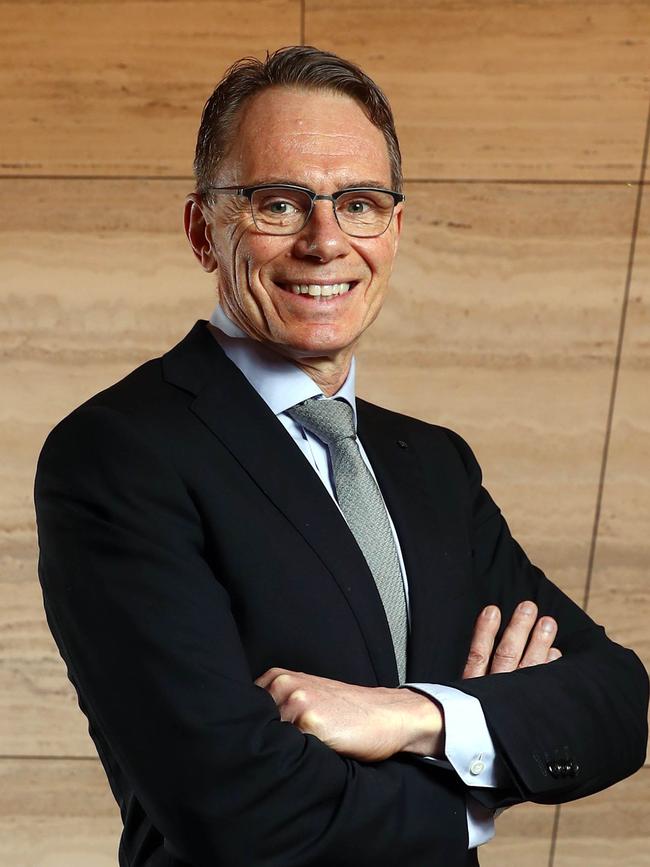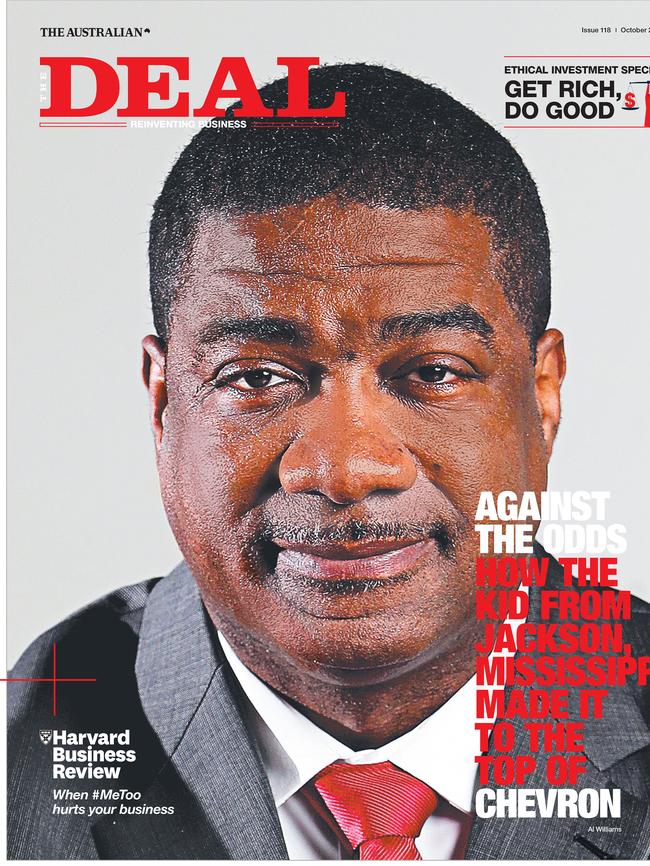Locals lead the way on ESG
Australian investors are favouring vehicles that suit their values. And executives and fund managers are taking note.

In the unlikely event you are not yet convinced that responsible investing has moved from the margins to the mainstream, then consider this: Last month, the CEO of Australia’s biggest mining company, Andrew Mackenzie of BHP, received widespread attention for a controversial callout to big business. Advocating a strong ESG (environmental, social and governance) ethos at BHP, Mackenzie suggested: “Deep down our employees want to be more moral and ethical.”
Mackenzie also said: “Climate change is indisputable.” As the head of what remains a major coal mining group, he was walking a fine line between ethical hectoring and leadership in corporate governance.
What is BHP up to here? Since when did miners become thought leaders on environmental and societal issues?
In global terms our business leaders — typified by Mackenzie — are falling into step with a wider international push that puts ESG at the forefront and forces the notion of “shareholder first” into the background.

Earlier this year the all-important US-based Business Roundtable created a new “statement of purpose” which upended the “profit comes first” theories of economist Milton Friedman that have dominated business for decades. The landmark statement was signed by a string of global business chiefs including the leaders of BlackRock, JP Morgan and Ford. It argues that business is for all stakeholders, not just shareholders, and aims to usher in a historic change in global business by recognising the rights of customers, suppliers and workers. More importantly it brings the ethos of ESG from the corridor into the boardroom.
The statement has drawn a backlash from politicians who wonder why corporate leaders don’t spend more time building prosperity and creating jobs. It may have also have puzzled casual observers who identify big business with a passing parade of opportunists and scoundrels.
But professional investors are less surprised. It’s not that they are more ethical or environmentally aware than the broader public. But they know that focused investing has outperformed mainstream investing year after year in survey after survey. Put simply, for smart investors, ESG-focused companies make more money than those which ignore the concept.
Read more | ESG, coming ready or not
It is sometimes loosely defined, but ESG investing has taken off in Australia and the action is not just at the institutional level. There is also strong interest from individual investors.
Will Hamilton, a financial adviser who has featured three years in a row on The List: Top 50 Financial Advisers produced by The Australian and Barron’s, puts it this way: “In the end, ESG is about moral capitalism. I believe that in this era, moral capitalism is about maximising the long term.”
Hamilton says that unlike the reported experience in the US, he is also seeing strong interest among individual (or retail) investors in the space. “You might think it is led by younger investors, but the number one age bracket where there is a demand for ESG principles in investing is the 60 to 75-year-old age group,” he says.
There has long been a belief in the Australian market that our substantial mining industry means we cannot rank highly on ESG compliance. Yet the picture is much more complex than that. There are more than 1000 mining companies on the ASX, making up close to half of all the share listings on the exchange, but some miners — such as BHP, Rio and Fortescue — continually score well. Nonetheless, it is true the sector also harbours some of the worst performers, typically small caps with valuations of less than $50 million often operating offshore in emerging markets.
‘The number one age bracket where there is a demand for ESG principles in investing is the 60 to 75-year-old age group’
So, in terms of ESG, do we lag or lead the world?
Simon O’Connor, chief executive at the Responsible Investing Association Australasia, says: “We are not behind ... the key survey of the area puts us well placed and often well ahead of major industrial powers such as the US.”
With Europe still housing the hub of responsible investing activity, the Responsible Investment Benchmark Report for 2019 shows that when measuring the proportion of sustainable investing relative to total managed assets over the five years to 2018, Australia scored 63 per cent. The US was at 26 per cent.
Liza McDonald, head of responsible investing at the industry fund First State Super, goes further: “I’d say some of the fund managers we have in this area across Australia are equal to any of the best around the world.”
Responsible investing is an umbrella term for ESG investment. It includes everything from companies with a light commitment through negative screening (avoiding certain investments such as armaments and tobacco) to core ethical investing where companies and investors take a more holistic view that seeks to offer a clean and green balance sheet and where there are checks on everything from property energy ratings to the policing of underpayment of wages.
At the most provocative end of the spectrum is impact investing which seeks to actively improve social and environmental outcomes through investing activity.
Examples of impact investing are so-called green bonds (underpinned by clean energy initiatives) and social impact bonds (underpinned by financial arrangements which seek to improve social outcomes often with charities or government care agencies).
While these different categories of ESG activity operate in tandem, the money keeps rolling in. According to the RIAA, total assets under management engaged in responsible investment grew 39 per cent in 2018 to $866 billion. In fact, the organisation now says, “responsible investment represents over half of all professionally managed funds in Australia”.
ESG-focused investing continues to hold the title as hottest sector in Australian funds management and there is little to suggest the juggernaut will slow anytime soon.
James Kirby is The Australian’s Wealth Editor






To join the conversation, please log in. Don't have an account? Register
Join the conversation, you are commenting as Logout